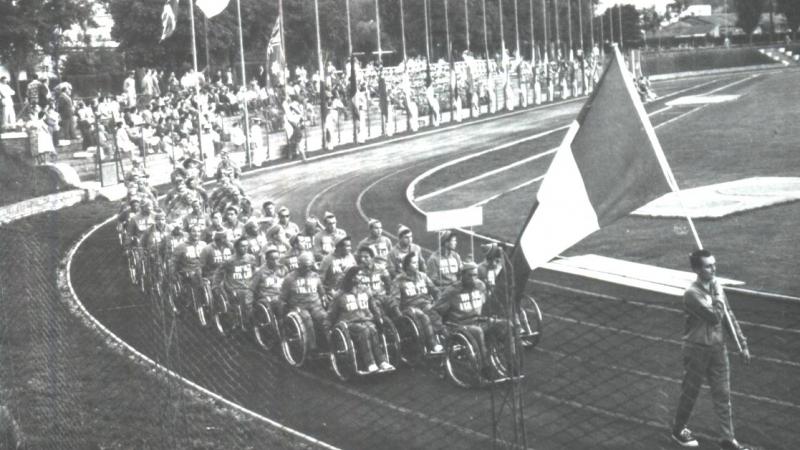ROME 1960 PARALYMPIC GAMES
The Rome 1960 Paralympic Games were a tremendous step forward in sport for athletes with physical disabilities.
The founder of the Paralympic Movement, Sir Ludwig Guttmann, and the Director of the Spinal Centre in Rome, Antonia Maglio, started preparations for the Games two years prior. It would be called the 9th Annual International Stoke Mandeville Games.
Now regarded as the Rome 1960 Paralympic Games, the competition took place six days after the Closing Ceremony of the XVII Olympic Games. It was supported by the Italian Olympic Committee and the Italian Institute for Disabled Workers (INAIL).
The Games involved 400 Para athletes from 23 countries who competed in 57 medal events across eight sports.
SPORTS
A total of eight different sports debuted at the first Paralympic Games, all of which were considered beneficial and suitable for athletes with spinal cord injuries.
These were: archery, Para athletics, dartchery, snooker, Para swimming, table tennis, wheelchair fencing and wheelchair basketball.
OPENING CEREMONY
The Opening Ceremony on 18 September garnered a crowd of 5,000 spectators, which greeted the wheelchair athletes during their colourful entry into the Acqua Acetosa Stadium.
Camillo Giardina, the Italian Minister for Public Health at the time, officially declared the Games open to the world.
MEDALS
The first ever Paralympic Games was held at Rome 1960, marking the beginning of a tradition - the athletes received a medal to recognise their achievements during the Games.
Design Elements of the Medals
The medals contain an image of a globe and the words “Stoke Mandeville International Games 1960”, as this was the official name for the Games at the time. On the reverse face, each medal has an engraving specific to the sport event that the medal was awarded in.
CLOSING CEREMONY
The Closing Ceremony on 25 September was held in the Palazetto dello Sport in the Olympic Village in the presence of Sir Guttmann, the Patron of the Games, and the wife of the Italian President, Donna Carla Gronchi.
Sir Guttmann summed of the Games saying: “The vast majority of competitors and escorts have fully understood the meaning of the Rome Games as a new pattern of reintegration of the paralysed into society, as well as the world of sport.”

 Facebook
Facebook
 Instagram
Instagram
 Twitter
Twitter
 Youtube
Youtube
 TikTok
TikTok
 Newsletter Subscribe
Newsletter Subscribe

